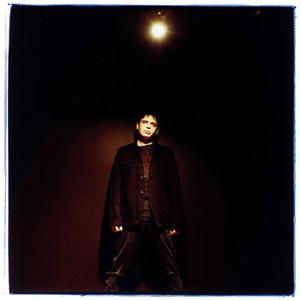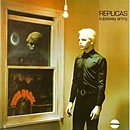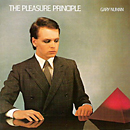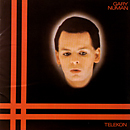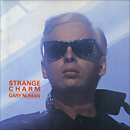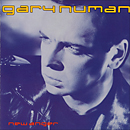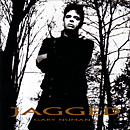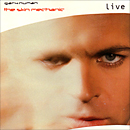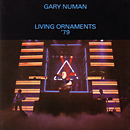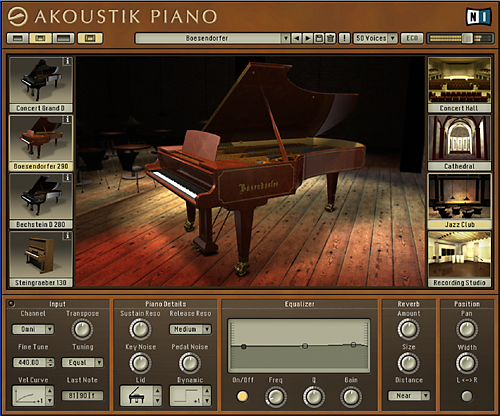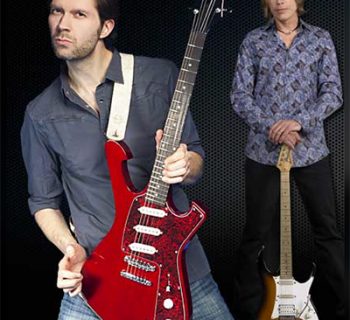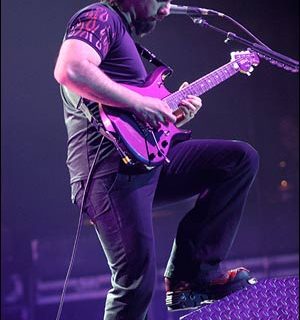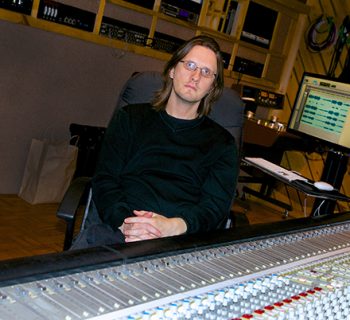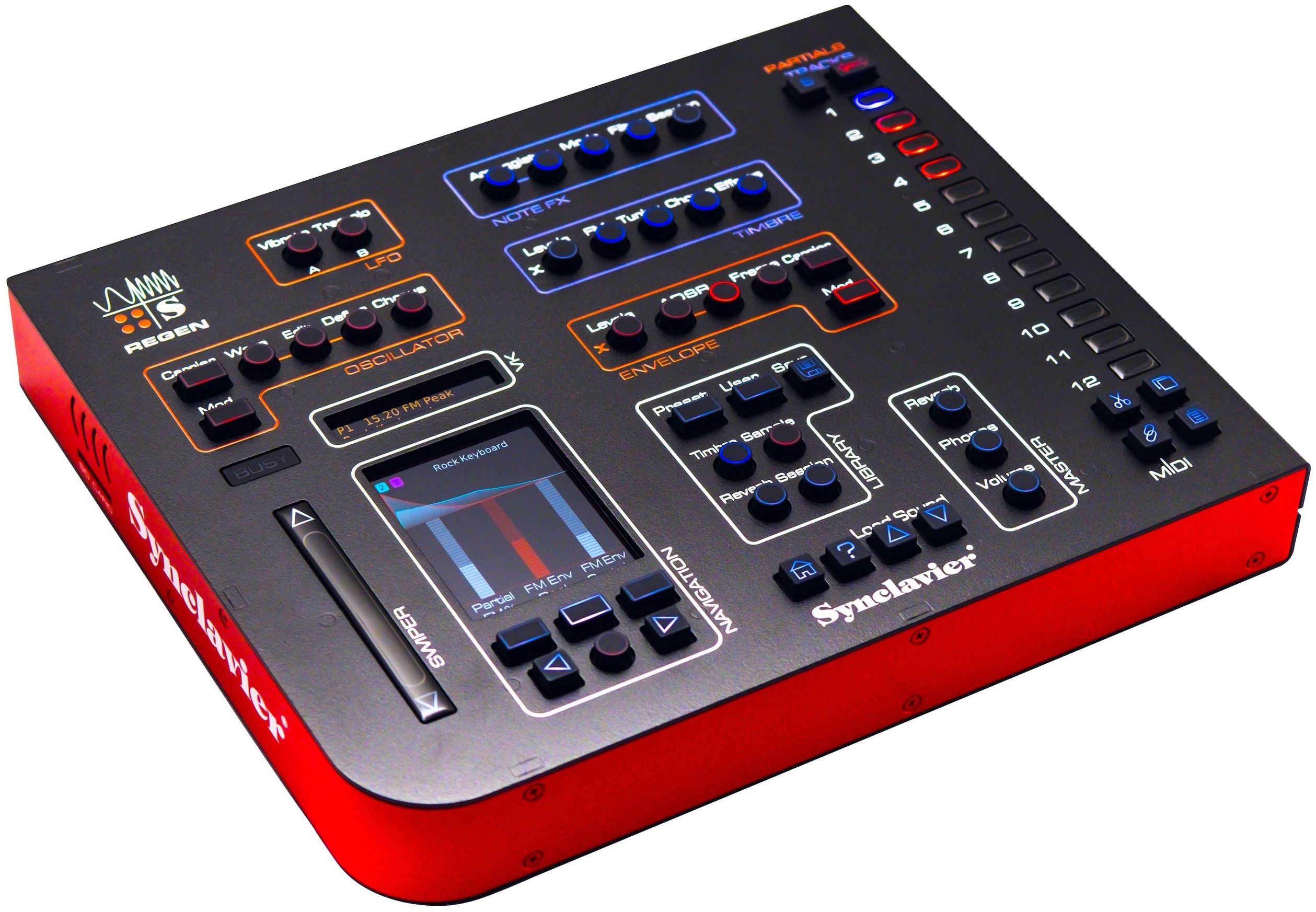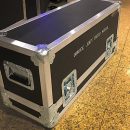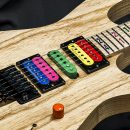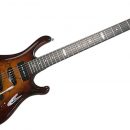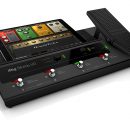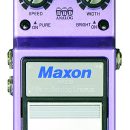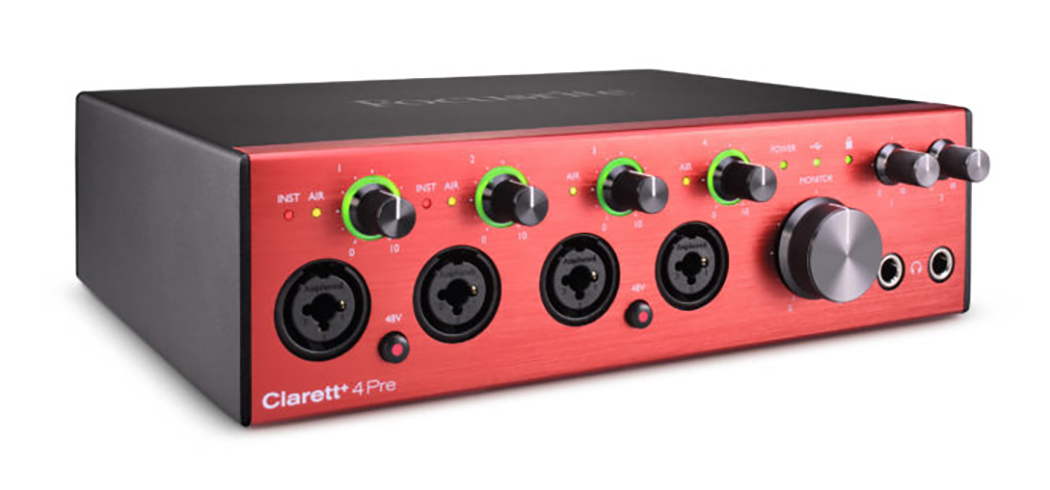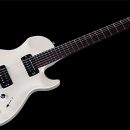| Gary Numan: Selected Discography |
| Gary Numan’s work has changed style-wise over the past twenty-five years. This brief discography highlights our favorite works from Gary’s enormous body of work. Classic Numan: The Early Years Whether you are rediscovering Gary Numan or finally getting to know him, 1978 to 1980 was the period where Numan’s innovation created the legacy for which we now consider him a pioneer. Replicas, The Pleasure Principle, and Telekon are the crown jewels in the classic collection. Music as original and emotional as you’ll hear on these records is hard to come by. Start your tour with The Pleasure Principle if you’re just testing the waters, and marvel at the genius of song and style from tunes like “Cars” – think about the fact that this song came out in 1979! Songs like “Complex,” “Films,” and “Metal” are among the numerous outstanding tracks, and you may even recognize “M.E.” – the DJs Basement Jaxx sampled it for their club hit “Where’s Your Head At.” Once you’re hooked, Replicas contains some of Gary’s earliest classic hits such as “Down In the Park” and “Are Friends Electric.” Telekon showcases further refinement of the Numan sound with masterpieces such as “I Dream of Wires.” Pop Numan: The Mid-to-Late Eighties After Telekon, Numan began to explore other styles of pop music that were infused with tinges of funk, jazz, and pop. Some albums were hits while others were misses. Strange Charm and New Anger stand out from within this middle period. Unlike the dark mood set by his earlier works, the mid-eighties Numan featured catchy pop hooks and female backing vocalists, and his classic analog synths were supplanted by bright digital synths ranging from Roland D-50 to Korg M1 and Wavestation. Somewhere between The Pet Shop Boys and Robert Palmer (who recorded covers of a few classic Numan tracks on his debut album, with Numan guesting) is the sound of the eighties-era Numan, but with more depth to his lyrics. Dark Numan: The Real New Anger The late nineties saw Numan return to form, invigorated by the sound of industrial music. His most recent releases are heavier and darker than anything he created in the eighties and early nineties, drawing influences from the likes of Nine Inch Nails (ironically, they were influenced by Numan’s early works) and infusing the industrial sound with his trademark sound and style. The current release, Jagged, is a great place to start, immediately followed up with Pure and Exile. The modern-day Numan has successfully fused his vintage sound and style with heavy guitars, electronic drum loops, modern synthesizers and, unlike many aging vocalists, Numan’s singing may have actually gotten stronger! Live Numan: Because Too Much Numan is Never Enough Gary Numan has released numerous live albums over the years. Different periods have showcased different musical treatments of his classic works, sometimes brilliantly while other times a bit on the horrible side. Living Ornaments ’79 provides the ultimate live Gary Numan experience. It sounds great and captures his classics beautifully. We can only pray to the aliens that it surfaces one day on DVD. A strange charm in the Gary Numan live collection is surely 1989’s The Skin Mechanic. This live album captures much of Numan’s eighties pop explorations in masterful rock form which puts the studio versions to shame. Tracks like “I Can’t Stop” and “New Anger” really came to life with Numan’s live band compared to the studio tracks that were marred by rigid and heavily quantized drum beats. He also performs a few of his classic hits with great presence and none of the characteristics that detracted from some of his other concert albums. |
Keyboard players historically look at the United Kingdom’s Keith Emerson and Rick Wakeman as being synthesizer pioneers. Those players, fantastic in their technical abilities, carved one particular space for themselves in the world of progressive rock music with ELP and Yes.
England’s Gary Numan has a less recognized name to many, yet his influence has touched a significantly larger audience than the heroes of prog. In many ways, Numan is truly the electronic musician pioneer. It was his bold use of synthesizers in more contemporary pop and rock that foreshadowed England’s New Wave sound, which to this day is still wildly popular (just listen to some Eighties and Modern Rock stations). Numan’s influence laid the foundation for music that today ranges from pop to gothic to electronica to industrial.
Gary Numan led us down the path of keyboard nirvana before Depeche Mode. Before The Cure. Before Duran Duran. Often times cited as an influence for artists ranging from Trent Reznor (Nine Inch Nails) to Butch Vig (Garbage) to Billy Corgan (Smashing Pumpkins), Numan created a sound that was years ahead of its time. In fact, his classic “Cars” is considered a modern rock staple from the eighties that still receives regular airplay, yet it was actually a hit as far back as its original release in 1979!
Gary’s music has been at times melodic, dark and haunting, and moody. His mournful vocal style has a singular and immediately recognizable tone, and his lyrics run the gamut from science fiction to religious overtones to despair and misery.
Over twenty-five years since he began recording music, Gary Numan released his seventeenth studio album, Jagged, in 2006 (total releases including remixes, compilations, etc. number well over 25). This outstanding album contains eleven tracks that showcase all that has made Numan a legend – classic synthesizer tones mixed with haunting pianos and ethereal synths, heavily distorted modern electric guitars, electronic loops mixed with acoustic drumming, synth lines that follow the vocal melodies (a Numan trademark, if you will), and more.
Talking with Gary was a personal treat – listening to his early albums The Pleasure Principle and Replicas ignited the spark in my teenaged self that compelled me to pick up an instrument and play. Never mind the fact that synthesizers in 1980 cost a small fortune and I could only afford a used drum set. Numan’s sound influenced me in the same way that it compelled countless others to embrace electronic noises and cold metal rhythms.
We didn’t limit ourselves to exploration of the new album, Jagged. We took a stroll down memory lane with Gary, revisiting classic tracks from every era, and compiled an essential discography for keyboard players and music fans alike.
About the CD, Jagged
MPc: On Jagged, the sound and style of playing really incorporates the influence of your earliest CDs, particularly the melodic use of synths that follow your vocal lines in the song choruses. Can you tell us about your approach to writing the music for Jagged and how it may have differed from the past few releases?
Gary: It wasn’t really that different at all. I’ve written very much the same way for many, many years. I sit down in the studio – for many years it was at a piano. These days it’s a synthesizer with a piano sample, a basic piano sound. I usually sit down and write various melodies and all the basic arrangements, and all the vocal melody lines, on piano. It’s what comes after that is different. The important thing about what I do is that it’s song first, all the noises later. I think that’s one of the differences between me and some of the people [creating electronic music].
A lot of people have very big sounding albums that are interesting to hear three or four times, but there’s not a lot of song craft going on. There are great sounds, and interesting ideas, but underneath it all I think it’s fundamental that you need to have a song. There are people who don’t do that. Maybe it’s that they just can’t write songs? Are they just more interested in the sounds? I’m not really sure what it is. When you have a lot of technology around you, it’s very easy to get caught up in an amazing sound. You just sort of build a song around it.
MPc: Yeah, that was my experience years ago when I first got a Korg Wavestation.
Gary: I remember the Wavestation. You could basically hit one button and practically have a song. Very, very clever, but it’s a danger. That’s why I don’t start with any technology at all. I start with piano, and I sit down and I write the songs there. The sounds come later. With Jagged, a lot of the synthesizer sounds on it came from Ade Fenton. He co-produced it with me, and he has a much greater sensibility for what I used to do. He’s a long-time fan since the very beginning. He was bringing in a lot of elements that, if I had been left to do it alone, I probably wouldn’t have done it. I’d have gone for something different. Arguably it might have been less grand, more aggressive. But I think it works really, really well. He made that connection between what I do now and what I did before.
I would write the songs, and then produce them up to a certain level to give them a sense of where they were going and a sense of atmosphere. Ade’s mission with every song was just “make it bigger.” Make it bigger, make it more powerful… that was his job, to take my songs and turn them into epics. He did a really good of that.
MPc: Can you tell us about some of the synths used on Jagged?
Gary: I would say that outside of [Spectrasonics] Atmosphere, and a little bit of [Korg] M1, it is probably 75% [Access] Virus. The thing to remember though is that on Jagged, no matter where a sound started, it was then processed to ridiculous amounts.
We also used [Native Instruments] Reaktor. It’s a software synth module where you can create your own synths from the ground up. With Reaktor, you also have the ability to put things through it. So we would take a sound from the Virus and put it through Reaktor and twist it and turn it into something else. There was an awful lot of manipulation.
MPc: Jagged features the best drum programming that I’ve ever heard on one of your CDs, and more acoustic drums than I’ve noticed in a while, too. What happened?
Gary: We wanted to make the album have a much more live drum feel to it when we started. Ade is particularly good at spending time on drum parts, and between us we came up with some pretty cool drum loops. And then we met Jerome Dillon when Nine Inch Nails came over to play in London, and he offered to play on a couple of tracks. It was brilliant – it made such a difference. I gave Jerome a few songs that I thought were finished to see what he could do with, and when it came back there was such another level of energy added to it. It was a real eye opener for me.
But we were running out of time. We were already mixing the album and had one day left that my time was available… I think we did [drums for] four or five songs in one day. That’s why there’s real drums on a big chunk of it, but we just ran out of time. It all happened right at the end of the recording with the deadline coming. I think the next time I’d probably like to have real drums on every track, or even more of it than this time. No matter how good the programming is, and there’s some really cool programming underneath it… you add a real drummer playing a real kit and it just adds something else no matter how good the programming is.
MPc: “Halo” is a really strong rock song that incorporates modern industrial sound with great melody and groove. How did that song come about?
Gary: I think it’s the second song I wrote for the album, and it’s the first one that Jerome played on. Initially, it was possibly my least favorite song, but as it progressed and a few things were added, the song really just came alive, especially once Jerome was on top of it. And now it’s perhaps one of my top two or three songs on the album, and it works brilliantly on stage.
MPc: Tell us about some of the guitars on this record. How did you get your heavy guitar sound?
Gary: There are three guitar players on Jagged. I’m on it a lot, and there’s Steve Harris, who is in my live band most of the time, and Rob Holliday, who is the live guitar player for Prodigy now. Rob and Steve both used Laney amps and cabinets. I think it’s the best, most controlled, power guitar sound that I’ve ever heard. I haven’t actually got a Laney setup of my own yet.
I recorded with Line 6 Pod equipment. I didn’t use tube. I use the software, Guitar Port, and [IK Multimedia’s] AmpliTube. But I’m going to go for Laney when we do the American tour because for me, it’s just the best stuff around at the moment. It gives me the same controlled sound that we get in the studio. I just love it.
History
MPc: You’ve been an influence to so many musicians, but we rarely if ever hear about your musical influences. Who were your early influences when you were learning to play and write music?
Gary: I was young… very young. It was The Monkeys. That was long before I started writing songs. It sort of got me thinking that the whole band thing was fun. When I started to write songs and I was looking around, T Rex was my big favorite. Then I got into David Bowie after that, but I was a much bigger T Rex fan for a very long time.
I got into electronics by accident. I went into the studio to make a punk record and a synthesizer had been left behind in the corner, and I just had a go of it. That’s how I got into electronic music. I literally stumbled across a synthesizer in the music studio.
MPc: That was the first Tubeway Army CD?
Gary: Yes, the first Tubeway Army record. We had just been signed by the record company to make a punk album. We’d been signed as a three piece, guitar-bass-drums punk band.
When I went back to Beggars [Banquet, record company] to do an electronic album, they weren’t too keen to start with and they didn’t have enough money to send me back to the studio, so they kind of had to go with it (the punk record) – they had no choice.
Seriously, I had never been interested in technology before at all. I had only heard things like Rick Wakeman and that stuff, and I wasn’t really into that. But as soon as I started to do it, I went out and scoured the record shops looking for anything else that people were doing with electronic music, and I came upon Ultravox. I thought Ultravox was brilliant. They became like a beacon for me over the next couple of albums. I just wanted to sound as good as Ultravox. To be really truthful, I never actually sounded quite as accomplished and well produced as Ultravox did [thousands of Numan fans would surely disagree with this humility].
That’s pretty much the way it’s always been for me. I’ve always had people that I admire, and I’m trying to be as good as them. I never quite make it, but they pull me up and make me try harder. It’s been that way for the last thirty years.
MPc: Who are some of the artists you enjoy listening to today?
Gary: There’s an awful lot of jingly, jangly guitar stuff going on. I’m not mad about new punk, not really mad about new electronic things. I just feel like I’ve really heard it all before.
I’m certainly a Nine Inch Nails fan. They continue to set standards. There’s a good thing about influences. You hear something, you like it, it helps you shape your own music and still come up with something that is yours, sounds like you, has your own identity on it. That’s when you make good use of influences. Trent’s brilliant at that. I think when he was doing Downward Spiral he was listening to my Telekon album each morning. But if you listen to Downward Spiral, I can’t hear any of that influence on the album because he turned it into something uniquely his, and that’s a brilliant thing to do.
It’s like you’re constantly at school. You’re constantly learning. The technology is changing and the music is changing. You’re constantly needing to reinvent stuff and come up with something new. It’s a tricky thing to do, and the longer your career goes on, the trickier it becomes.
MPc: What’s your go-to synth for writing these days?
Gary: After the initial piano, it’s usually one of two things. Spectrasonics Stylus RMX, an amazing sample and loop player, it’s the fundamental background of the groove, at least in the early stages anyway. And there’s another one [also from Spectrasonics] called Atmosphere. I would flesh out tonal things with that one. It does lots of amazing mood things in the background. I use it on big long intros. It’s just brilliant for haunting backgrounds. I’m also really getting into the [Access] Virus synth.
MPc: Do you do your own sound programming?
Gary: Yeah, I do a lot of that. On the Jagged album, Ade was doing a massive amount of it as well, and we worked closely together on it. If can get away from using a preset sound, I’ll definitely try to get away from it, although if we do use a preset because it’s particularly good, there’s no point in changing gold dust to get gold dust. But nonetheless we’ll try to change it up. There is one particular sound I’m using of which I’m particularly guilty of using in its native form. It’s just such a lovely sound I can’t get away from. [No, Gary didn’t reveal which specific sound it was – some things must remain a mystery.]
Retrospective
MPc: I thought it would be interesting to look back at some of your music from the past 25 years of your career and hear what you think about certain songs… anything from what you were feeling when you wrote it, or something you love or hate about it, or something different about the music, and so on…
Gary: OK, but I must warn you that I have an unbelievably bad memory (laughing).
MPc: 1978 The Plan—"Joe the Waiter”
Gary: Acoustic track… it’s still my wife’s favorite song that I’ve ever written, which I find terribly disappointing (laughing). To this day when I do it live, it’s an absolute favorite to the loyal. I had written three or four acoustic songs when I first put the band together – a couple of them ended up coming out on an album called The Plan. It’s one of those songs that is just massively popular with the fans that I’ll never really understand. I’m slightly embarrassed by it all.
MPc: I think it has to do with your emotional impact and delivery in that song. It’s just as sad as sad can be.
Gary: That’s funny, because when I sing it live, it’s kind of fun – it’s a nice song to sing. But it’s just so out of character with everything else I’m doing. It feels old, and almost like I’m a teenager again.
MPc: 1979 Replicas – “Are Friends Electric?”
Gary: It was two songs, neither of which were finished. One day I was playing one of them [Gary hums some of the melody… wow, does this mean I was serenaded by my hero?] and I was like, “I don’t know what to do with this. I cannot think of a chorus for this,” and I started to play the other song that I was working on, which is the talking part, and I thought, “Yeah that’s it. I’ll just put the two songs together. Problem solved. I’ve got a song out of it.”
And one day I was playing it back, and it didn’t have that little high note in it. I hit a wrong note one day before we recorded it and I thought, “Well that sounds better.” And then it went on to be number one. I guess there’s a lesson in there somewhere. But that’s really it – it was just two songs stuck together and then it ended up being number one for four weeks. You never know!
MPc: 1979 The Pleasure Principle – “Complex”
Gary: We were working in a demo studio on the songs that were going to go on The Pleasure Principle. I actually don’t have any knowledge of music – can’t read it or write it. Still to this day, don’t know the major [popular, as opposed to key] chords on the piano. I just do it by form and by stumbling forward. “Complex” is a case in point. The synth line, which goes through the whole song, is mirrored by string. I just made it up. It was one take, just played whatever came to mind. And that’s what “Complex” was. It was a one-take shot in the dark, and it ended up having a pretty synth line to it. It’s difficult to do live because to this day, I’ve got no idea what I played.
MPc: 1986 Strange Charm – “My Breathing”
Gary: This is the first time I had ever attempted to use an Arabian kind of melody line. I’ve always been fascinated by it, and always wanted to do an album with a merger of the two styles, but had never done it. “My Breathing” was an attempt to make quite a long epic song and also introduce an Arabian type of feel and melody to something.
MPc: 1989 New Anger – “Respect”
Gary: I was working with a band that I had signed to my label. They were horrible, evil people (laughs). I’ve always been grateful that I’ve had some success and always remembered everyone who helped me. But then these people come along, and they seemed to have this attitude that they were some kind of undiscovered geniuses and that it was almost my duty to help them because they were so great. But they were backstabbing, two-faced little children (laughing)… horrible, horrible people. And “Respect” is about them.
MPc: That reminds me of my own songwriting where lyrics might be interpreted to mean something completely different to other people from what the meaning actually was.
Gary: That’s something I tried to do with Jagged. I said to my wife that I wanted the album to mean something very close and personal to me. It’s going to be about some of the darker things in my life, and be quite heavy lyrically. But I wanted it to be able to be read by other people with no knowledge of that, and have a completely different read of it, and have it make complete sense on a totally different level to someone else in relation to their life.
MPc: 1994 “Like a Refugee” single, by Hugh Nicholson
Gary: I just did a guest vocal on that one – I didn’t write it. I like that song, actually. I’ve often times done a lot of collaborations where I’m not particularly mad about the music, necessarily, but I like the people, and I want to get involved because I like the people. It’s not always my thing musically. In this particular case, though, I actually really liked the song as well.
MPc: You definitely put your stamp on it.
Gary: The music was written by other people. The lyric was written by other people. I really did come in there just as a name, a guest singer, to help it get some profile. I was used! (laughing)
MPc: 1998 Sacrifice – “A Question of Faith” or “Magic”
Gary: “Magic” was my first, arguably first and only, attempt over the past twenty-five years to write a song that was optimistic. I wanted it to be happy. I don’t really do happy very well (laughing). That was my one and only attempt in my career to write a song that was happy, which is bizarre, actually.
“A Question of Faith” – from a political point of view, that one is about the danger of blind faith and how I find it unbelievable that people can have faith in the face of things that go on in the world today.
MPc: 1999 Exile – “Dead Heaven” or “The Angel Wars”
Gary: The whole Exile album had a kind of religious theme to it. I’m not trying to be offensive to anyone, but it fascinates me nonetheless… I just wondered one day, wouldn’t it be frightening if we’ve misinterpreted everything and that heaven and hell are actually the same place?
Any song you pick from that album is going to be a variation on that particular theme. We may have made a massive mistake. God is not forgiving, and god is not kind, and heaven is not a place you want to be. Every song on that album takes a slightly different take on that idea.
MPc: 2000 Pure – “Torn” or “Little In Vitro”
Gary: “Torn” is about someone I know who is into kinky stuff, who likes to get beat up actually. She advertises in magazines for people to have sex with her providing they kick the shit out of her. She gets off on that. Terrifying. The song is based on her and some of the things she’s into.
MPc: If you don’t want to talk about “Little In Vitro” because it’s too personal from something in your real life, we don’t have to talk about that one.
Gary: I’m happy to comment, and it is very much part of our personal life. Me and my wife had been trying to have a child since the early to mid nineties, and we ended up going the IVF route… test tube baby. Our first attempt was initially successful, but then we were told there was something wrong with it, and that it probably wouldn’t survive, and did we want to terminate it. It was a horrific experience, but then [before a decision could be made] it died anyway. The whole song was me talking to the baby.
MPc: I thought that was one of the most moving songs you ever wrote lyrically.
Gary: It probably is the most emotional song I’ve ever written. To this day it’s almost impossible to sing live. I’ve tried a few times, and almost got through it once. I’m not the most emotional man, I don’t cry much, but you try to sing that song and everything just comes back.
I’ve got two daughters now.
MPc: Thankfully some good news after that!
Gary: One at two and a half, one at six months. I’ve had them quite late in life, so I’m going to die before there’s a good chance they’ll be married. On Jagged, there’s a song called “Scanners” – it’s about that, and wanting to come back and watch over them.
I’ve tried to do that one live a few times now. The first time was a disaster – I couldn’t get through it at all. The second time worked. I had to completely disassociate myself from the words. I had to make myself think about something completely different and just sing the song. But that’s not something you want to do.

